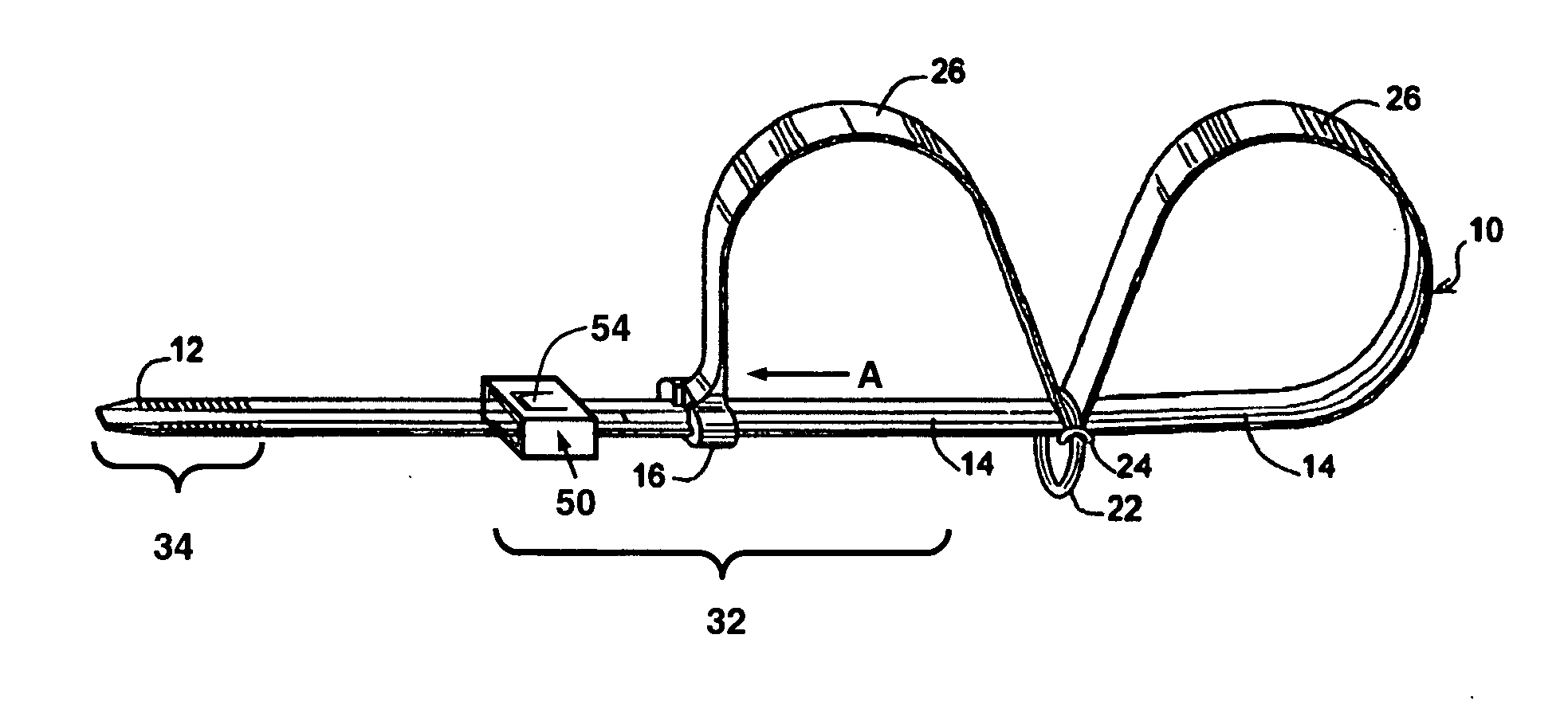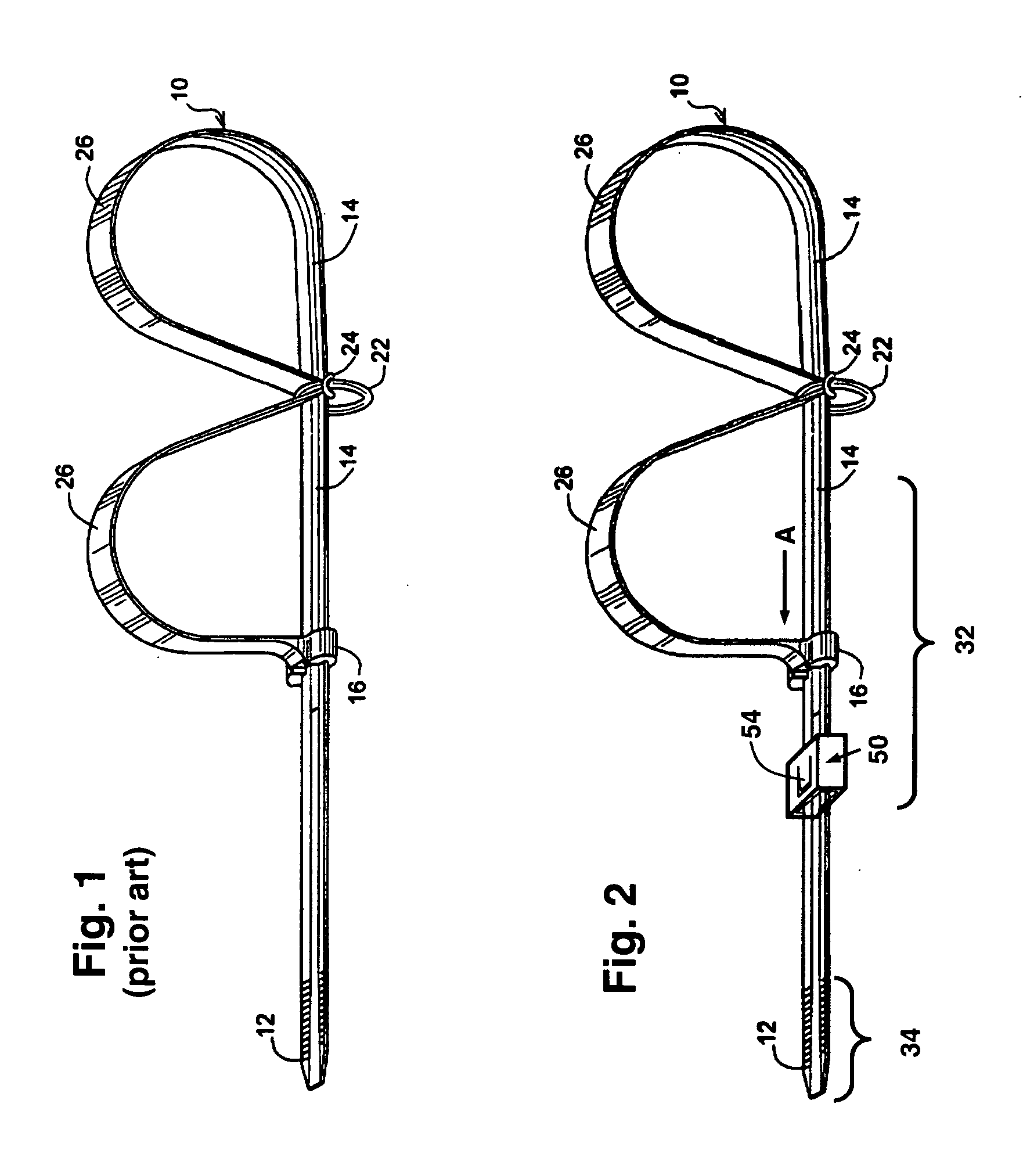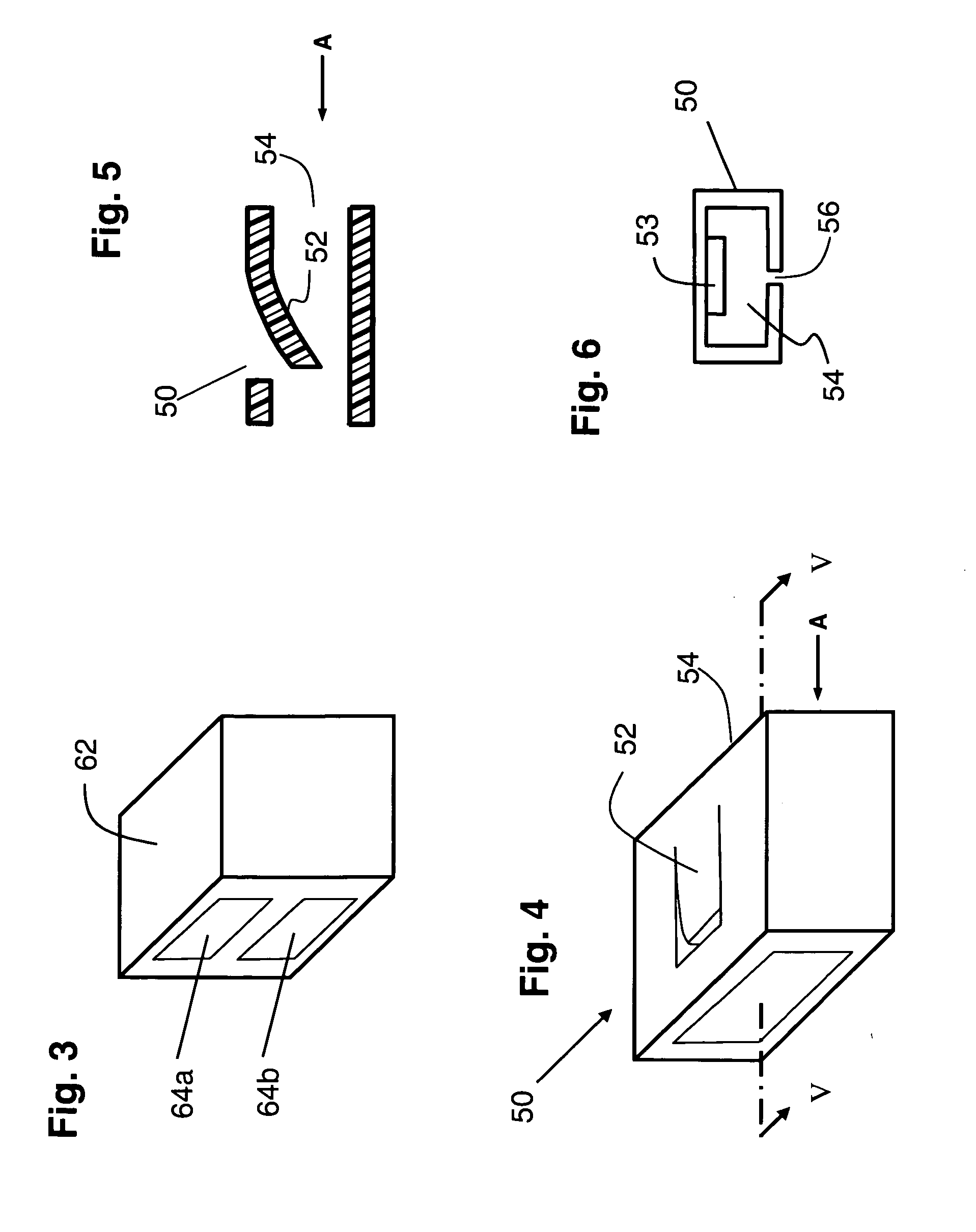Disposable double lock restraint system
a restraint system and double lock technology, applied in the field of disassembly of restraint systems, can solve the problems of inability to carry enough sets of handcuffs, inconvenient operation, and high cost of conventional metal handcuffs, and achieve the effects of low cost, simple operation, and light weigh
- Summary
- Abstract
- Description
- Claims
- Application Information
AI Technical Summary
Benefits of technology
Problems solved by technology
Method used
Image
Examples
Embodiment Construction
[0031]FIG. 2 illustrates generally at 10 one possible implementation of the present disposable handcuff system. Handcuff system 10 comprises a flexible tie comprising a locking head 16 and an elongated, substantially planar strap 14 that extends from locking head 16 and has first and second opposed surfaces. The strap includes an intermediate engagement portion 32 and terminates in a distal end or tip portion 34. Locking head 16 is configured with a passageway that extends through the head and has dimensions that accommodate insertion of strap 14 in the direction indicated by the arrow labeled with reference letter A. A unidirectional latching stop projecting into the passageway engages the strap and inhibits its removal. Handcuff system 10 further includes locking sleeve 50 to augment its security, by increasing the force needed to overcome the resistance provided in concert by locking sleeve 50 and locking head 16 to inhibit substantial movement of the strap in a withdrawal direct...
PUM
 Login to View More
Login to View More Abstract
Description
Claims
Application Information
 Login to View More
Login to View More - R&D
- Intellectual Property
- Life Sciences
- Materials
- Tech Scout
- Unparalleled Data Quality
- Higher Quality Content
- 60% Fewer Hallucinations
Browse by: Latest US Patents, China's latest patents, Technical Efficacy Thesaurus, Application Domain, Technology Topic, Popular Technical Reports.
© 2025 PatSnap. All rights reserved.Legal|Privacy policy|Modern Slavery Act Transparency Statement|Sitemap|About US| Contact US: help@patsnap.com



